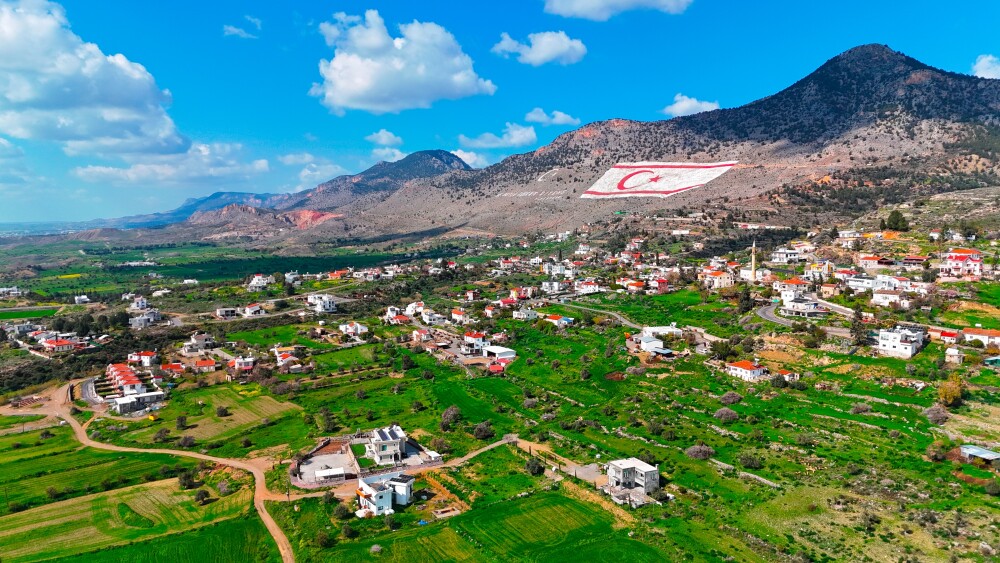Two months ago, Turkish Cypriot authorities detained five Greek Cypriots who crossed into an the occupied north of Cyprus, reportedly to visit properties to which they held deeds, properties from which Turkish authorities dispossessed them in 1974. They charged the men with crimes ranging from illegal entry to espionage. The case remains unresolved and exposes questions both about authority in the occupied north and U.S. policy in the Eastern Mediterranean: Who exercises authority in the occupied north of Cyprus? Do these arrests amount to hostage diplomacy? How should Washington respond?
The five remain under restrictive conditions pending trial: required to pay financial “guarantees,” report weekly to the nearest police station, surrender their travel documents, and remain in the occupied north. While they are not behind bars, such restrictions show how the Turkish and occupation authorities seek leverage from the case.
Reports show the Turkish-backed regime is preparing lists of Greek Cypriots who apply for property certificates in the north and of Turkish Cypriots who assist them.
The arrests are not isolated. Reports show the Turkish-backed regime is preparing lists of Greek Cypriots who apply for property certificates in the north and of Turkish Cypriots who assist them. It also detained Murat Metin Hakkı, a Turkish Cypriot lawyer representing the five men who handles property claims. Even Ersin Tatar, the leader of the Turkish-occupied zone, distanced himself from the spectacle of Hakkı being led to court in handcuffs. Such moves resemble a campaign to intimidate claimants and obstruct access to legal remedies.
Local reaction in the occupied north underline the political character of the arrests. Izet Izcan, head of a Turkish Cypriot union, denounced the detentions as a “complete conspiracy.” Former leader Mustafa Akıncı described them as retaliation disguised as justice. Local newspapers called the five men political hostages.
Political context is equally important. The Turkish Cypriot side seeks to pressure those who prosecute confiscations of Greek Cypriot properties. At the same time, Tatar seeks to leverage political benefit ahead of October elections in the occupied north. Tatar’s government may carry out arrests, but Turkey sets the strategy. The presence and authority of Turkish forces in northern Cyprus makes clear that responsibility lies in Ankara, not in Nicosia.
Turkey has a record of using hostage diplomacy to gain diplomatic concessions. In 2016, it imprisoned American pastor Andrew Brunson in an attempt to compel the U.S. extradition of dissident theologian Fethullah Gülen. The Cypriot hostages Turkey’s proxy now holds represent the same logic. By detaining Greek Cypriots pursuing property claims and the lawyer assisting them, Turkey creates fear, blocks legal action that could spark a flood of claims, and seeks political advantage.
Members of the Congressional Hellenic Caucus sent a letter to Secretary of State Marco Rubio calling the detentions “politically motivated and illegal.”
How should the United States respond? U.S. lawmakers have taken notice. Members of the Congressional Hellenic Caucus sent a letter to Secretary of State Marco Rubio calling the detentions “politically motivated and illegal.” They warned that the arrests undermine the bicommunal, bizonal settlement framework the United States has long supported. Because the detainees were visiting their ancestral homes, the case carries symbolic weight. The lawmakers urged the State Department to demand the detainees’ release and hold Turkey accountable for ongoing violations tied to the occupation.
If Washington treats the matter as a local dispute, Ankara pays no cost, and it will repeat the practice. If Washington holds Turkey accountable, it nips in the bud Turkey’s use of detention as a political weapon.
Nor will the consequences be limited to hostage diplomacy. Turkey is assessing the U.S. reaction and will see U.S. inaction as a greenlight to increase aggression in other ways. If Washington ignores its aggression, Ankara will read silence as permission to continue aggression in Cyprus and elsewhere. If Washington confronts Ankara, however, then the United States signals that even NATO membership does not shield allies from accountability. Whether President Donald Trump and Rubio realize it or not, the choice now is about whether U.S. defines its policy in the Eastern Mediterranean by principle or by tolerance of coercion.







